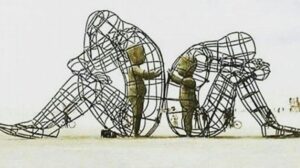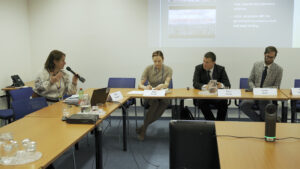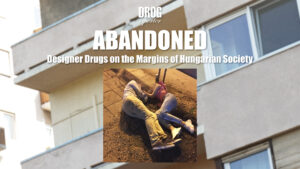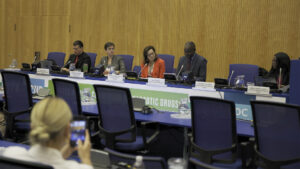In today’s episode of the oral history of the movement of people who use drugs, we travel to three Eastern European countries, where activists fight very restrictive drug policies.
Our first country to visit in the 9th episode is Russia, which is infamous for it’s inhumane drug policy and resistance for change. Prisons are full with drug users, and around 1.5 million people live with HIV, a majority of them are infected through injection drug use or their injecting partner, all because in Russia methadone substitution treatment is banned and harm reduction is not only not supported, but talking about it can be considered drug propaganda. What is less known is how vibrant and brave the user activist and harm reduction community is in Russia. Back in the early 2000s, a small group of desperate activists at FrontAIDS, carried coffins and chained themselves to the doors of the Mayors offices, to demand HIV medication. People who use drugs at that time were considered “socially unuseful,” therefore ineligible for treatment, and were basically left to die. Activists, like Sasha Volgina, were not sure that their efforts would be fruitful, but they did not want to die in silence. Their colorful and creative actions were the key to finally receiving ARV treatment, but they could not achieve the other aim of the movement, to gain access to life saving substitution treatment. Anya Sarang, director of the Andrey Rylkov Foundation tells us the exciting story of FrontAIDS, and how activists fight at the International Court of Human Rights for the right to access substitution treatment in Russia.
Georgia has one of the harshest drug policies in the world. You could get 8-20 years or life-time imprisonment for 1 gram of drug, and every year police randomly forced a hundred thousand people on the streets to provide their urine for drug testing. After a point Georgian youth became fed up. The movements of people who use drugs achieved decriminalisation of marijuana, and when police started raiding clubs with kalashnikovs, with the support of the White Noise Movement, tens of thousands of people marched to the streets, dancing, demanding drug policy change. David Subiliani and Paata Sabelashvili tell us the story how techno culture in Georgia became the backbone of fighting for human rights and human drug policy. Koka Labartkava from New Vector and his colleagues successfully campaigned against the large scale urine testing practice and managed to make Hepatitis C treatment widely available for people who use drugs.
Ukraine has a well established and organised user movement, with 800 individual members and 40 networks in the Ukrainian National Network of People Who Use Drugs, and there is a separate network for women who use drugs as well. Activists like Olga Byelyayeva and Anton Basenko, who are also members of the Eurasian Network of People who Use Drugs (ENPUD) successfully supported the availability of opiate substitution treatment, and continuously fight against stigma and discrimination of people who use drugs in the country.
Starting on Monday, 6th of July 2020, we publish one episode per week for 10 weeks. The episodes follow the timeline of the development of the movement of people who use drugs from Amsterdam to Afghanistan and globally.
The production of the series has been a great adventure. We conducted 34 video interviews in 20 countries around the world. 8 interviews were filmed by the Rights Reporter Foundation, the rest by members of our Drugreporter Video Advocacy Network, video activists, and freelance videographers worldwide.

The documentary series is part of the online conference “HIV 2020: Community Reclaiming the Global Response” which runs from July through October of 2020.
An alliance of global key population-led networks, networks of people living with HIV, treatment activists, and our supporters, has formed to organize an alternative international community-led online event.
The HIV2020 alliance has decided to organize the community-led event to provide an alternative for individuals who cannot or will participate in the AIDS2020 virtual conference. Its goal is to offer new opportunities to reaffirm the leading role communities play in the global HIV response.
To view each new episode every Monday, beginning today, visit this page.
This project was made possible by the financial support of the Bridging the Gaps Programme. This unique programme addresses the common challenges faced by sex workers, people who use drugs and lesbian, gay, bisexual and transgender people in terms of human rights violations and accessing much-needed HIV and health services. Go to www.hivgaps.org for more information.
Special thanks goes to Tonny van Montfoort, EuroNPUD representative on the INPUD Board, for driving this oral history project forward and setting out the creative vision, and to Igor Kuzmenko, Sasha levin, Mariam Jibuti and Lika Beritashvili for their great help in the realisation of this episode.
István Gábor Takács
Drugreporter





